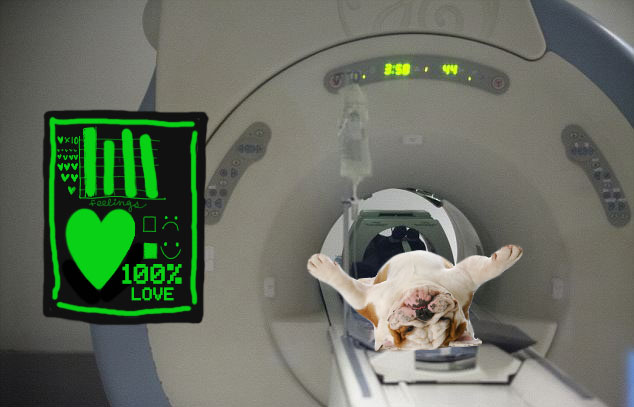If you ask an agility dog trainer if are dogs capable of feeling love like we do, you might get somewhat of a shocked response! ‘Of course, dogs love and feel love!’ – You’d be crazy to suggest otherwise. But science is emotionless, can studies show positive results?

Dr. Gregory Burns, a neuroscientist from Emory University, conducted research on the brain waves of dogs by monitoring their MRI scans. He was monitoring them while they were going through simple activities with their human owners. What did he find?
Yes, dogs feel love!
Dr. Burns and his colleagues have concluded that dogs feel emotions to a surprising extent. The scientists scanned 12 dogs and used different stimuli to measure dog’s responses.
The research can be explained with one simple example,

The scientists separated the dog from its owner for a few minutes. When the dog got to meet its owner again after the staged disappearance, the area of the brain called caudate nucleus lit up. This is the same area that lights up when humans feel love.
To gather more information, Dr. Burns would have the owner ignore his dog while still being in the same room, and other times he would have the owner play with another pet in front of the dog.
In his findings, Dr. Burns concludes,
“The ability to experience positive emotions, like love and attachment, would mean that dogs have a level of sentience comparable to that of a human child. And this ability suggests a rethinking of how we treat dogs.”
The importance of this research
This type of research has not been pursued before, and it reveals that dogs feel emotions just like humans. This research concludes that training should involve even more treats and positive reinforcement, and less harsh training techniques.
Shock collars, pinching, hitting, choke collars all should be condemned behavior. Imagine how would you feel if similar things were being done to you?
According to various agility trainers, this study comes as no shock. Many of them say that it is “visible and apparent” that dog’s love human and are very emotional.
How does this change our training methods?
If this study proves anything it proves that we should concentrate on positive reinforcement. Many of the behavioral training methods that imply harshness needs to be discontinued. We now understand that dogs “feel just like us” and they actually suffer when we put them through difficult training.

